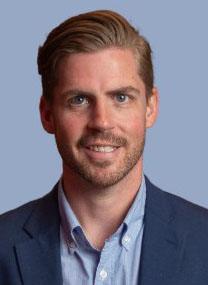

On Sept. 15, Oklahoma City hosted the first in-person annual meeting of the Southern Baptist Research Fellowship (SBRF) since the pandemic. Beginning in 1977, SBRF members foster a more comprehensive understanding of the scientific study of religion and promote maximum use and practical application of research to serve the local church and advance the mission of the Gospel and work of the SBC.
I joined SBRF after completing a doctoral dissertation at Southeastern Seminary. The study gathered nationwide data on the effective use of technology in one-on-one discipleship relationships.
What happens next is a common experience. The research benefitted me since I earned a degree. Is there any way this work can help others?
SBRF gave ongoing life to the work I had done, inviting me to present my research and identify ways my efforts could help more in the Southern Baptist family who faithfully make disciples around the world.
SBRF is a fellowship of professional and academic researchers serving Southern Baptist colleges, universities and seminaries as well as local churches, state conventions, Lifeway Research, the North American Mission Board and the International Mission Board. From this cross section of the SBC, members engage in a range of research topics that enhance our cooperative effort to share the Gospel.
Last month’s SBRF meeting revealed again how research is vital to the future of church.
First, empirical research elevates the discussion. Problems aren’t new to churches. Just read a few of Paul’s letters. Then and now, problems can compromise our integrity and distract us from the mission. Research is a pathway to wiser discernment when tackling challenges facing local churches. It helps pastors and leaders see past distractions to identify the real problems and discover redemptive solutions that create new opportunities for Gospel work.
At the meeting, Minh Ha Nguyen, who serves as global research data and delivery manager at the IMB, presented new research on the state of ethnicity and race in the SBC. The study showed ethnic minority groups grew by 1 million over the past two decades. The work by Nguyen, in collaboration with multiple SBC entities, resulted in a dynamic tool where you can find nationwide as well as state-by-state data on ethnic diversity in the country and within churches. Better understanding of regional demographics and the nature of the growth in diversity can transform the way we think about church-planting strategies or approach racial issues.
Second, SBC researchers are partners in the Gospel. Membership in SBRF means fellowship with experienced researchers sharing findings, collaboratively developing future studies, and providing our students and graduates with great opportunities to present their work at a professional research conference.
Additionally, SBRF recognizes the Researcher of the Year Award celebrating important work so more in the SBC can benefit. At the 2022 meeting, SBRF presented the Quantitative Researcher of the Year Award to Scott Thomas at New Orleans Seminary for his study on the relationship between pastoral prayer emphasis and evangelistic effectiveness. The Qualitative Researcher of the Year Award recipient was Minh Ha Nguyen for his work developing the Shalom City Index as an indicator for measuring the progress and impact of the Gospel in urban contexts.
Finally, research can reframe the future. The keynote speaker, Jay Gary, explored methods of strategic foresight and how they can be applied to research for the future of the church.
Gary, the immediate past chair of the Association of Professional Futurists, challenged us to see beyond the headlines of declining church attendance reports. Strategic foresight in research can shed new light on societal trends, analyses and key market indicators. That can empower leaders to break free from the push of the past and the pull of the future. This kind of research helps churches to discern the times as we press onward with the hope of the Gospel and power of the Holy Spirit.
Joel W. Harder is the founder of Capitol Culture, the chaplain for the Oklahoma House of Representatives and vice president of membership for the Southern Baptist Research Foundation.

















